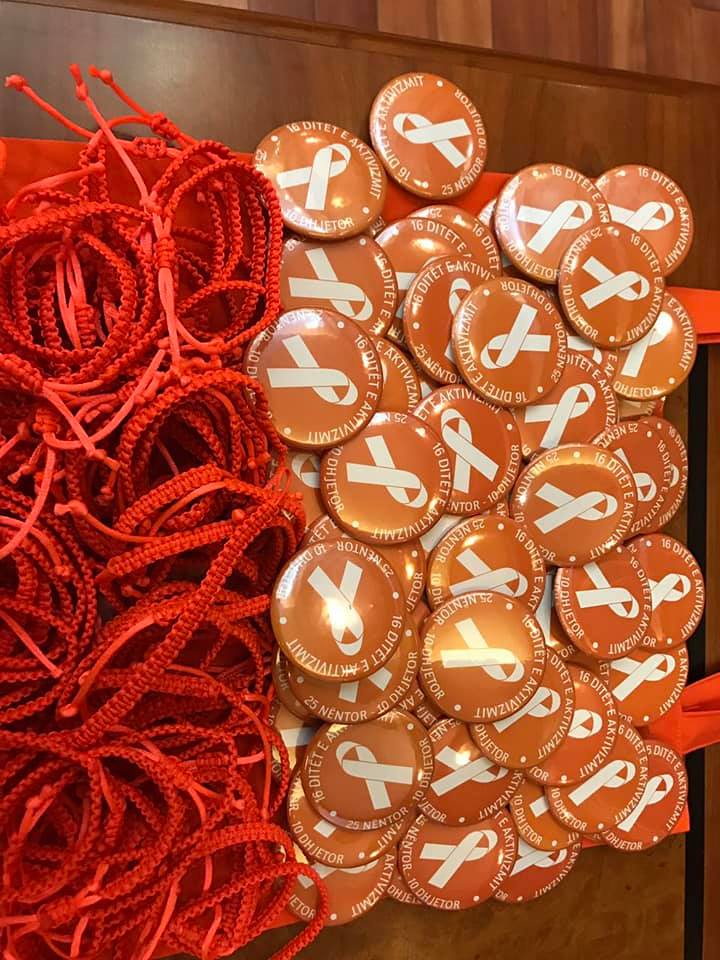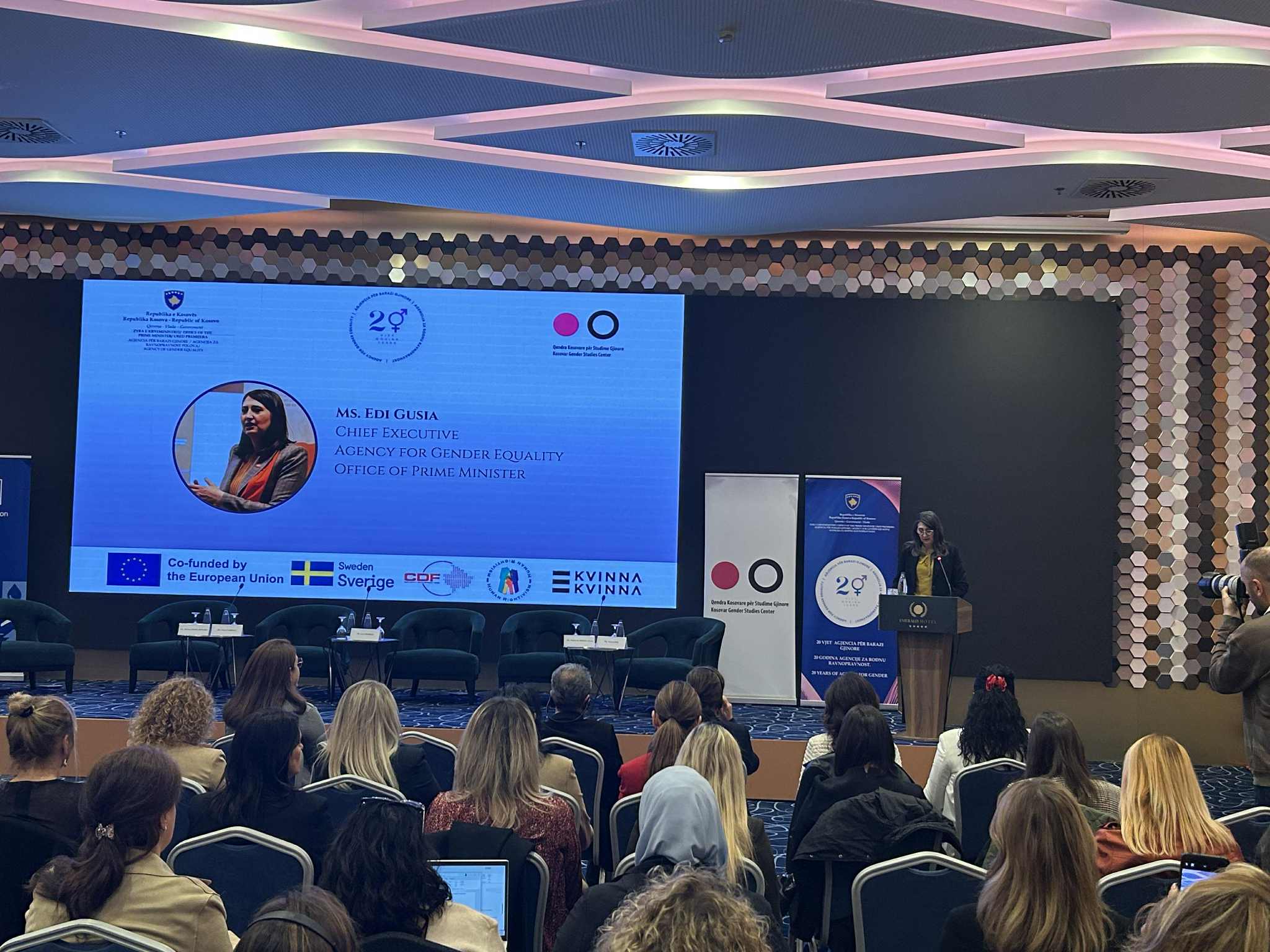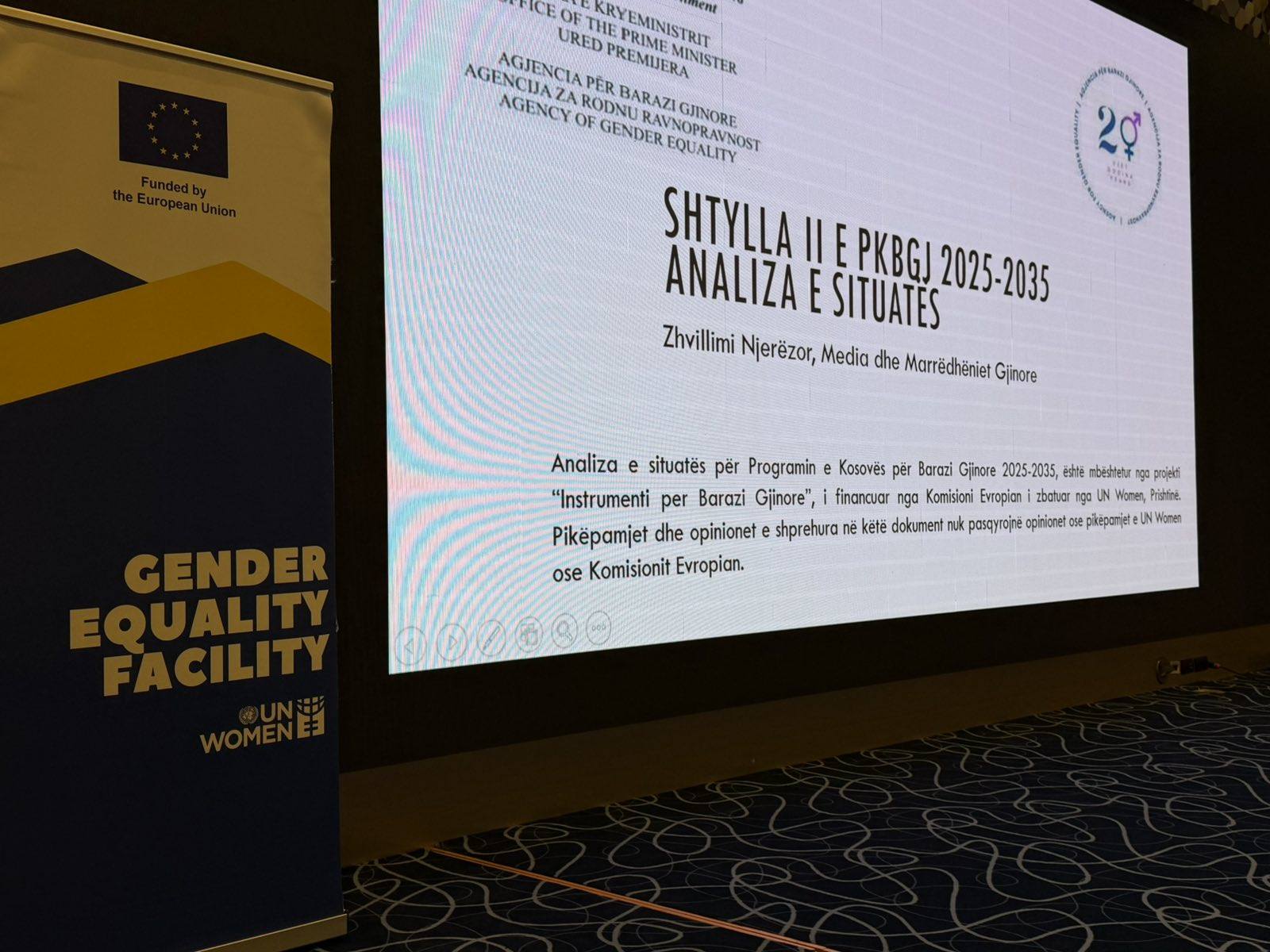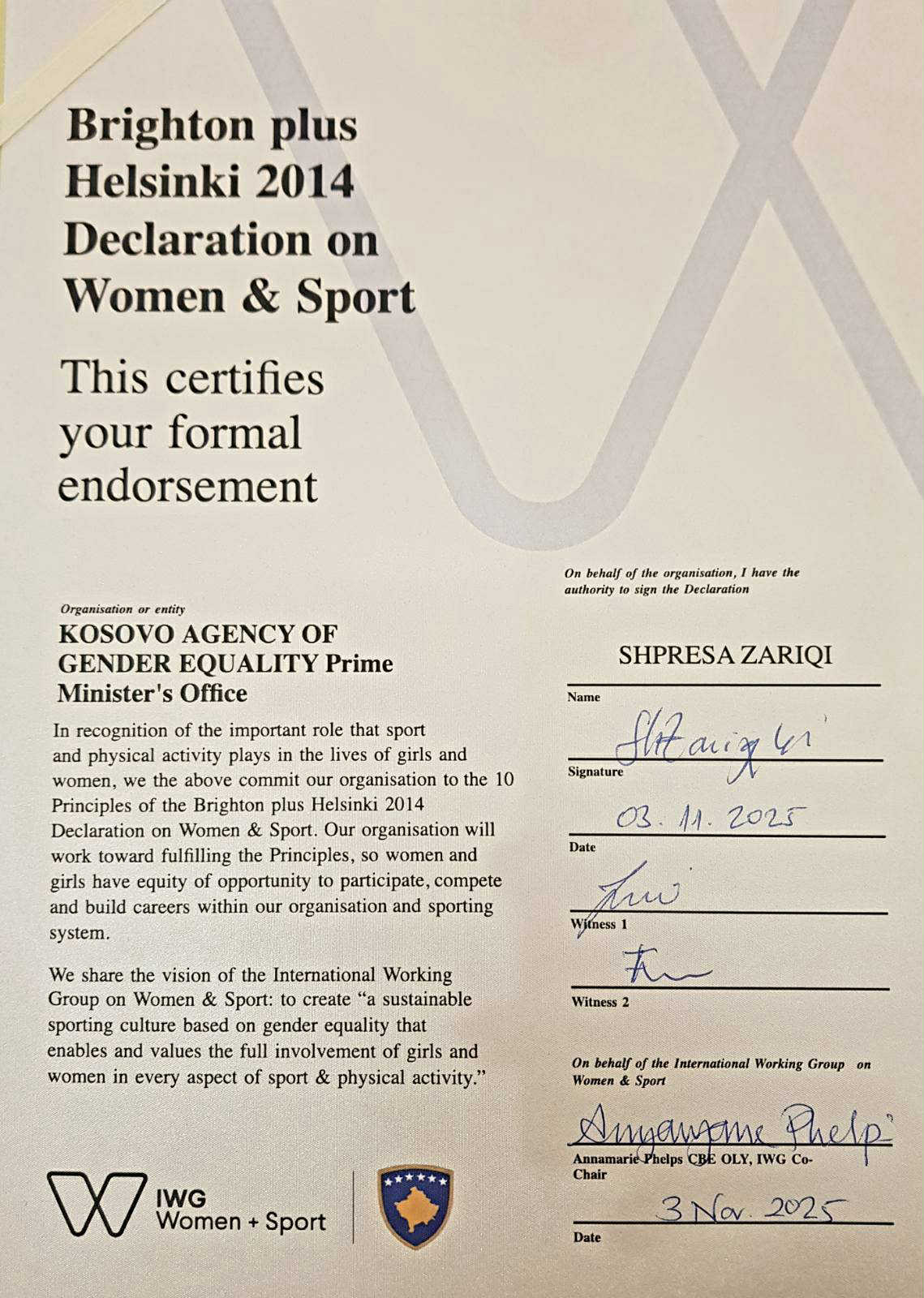The Security and Gender Group calls for concrete actions to respond to the “shadow pandemic” of violence against women and girls

10 December 2020
As the global campaign of 16 Days of Activism Against Gender-Based Violence comes to an end, the Security and Gender Group (SGG) calls for the elimination of all forms of violence against women and girls, and respect of women’s rights. Witnessing how the COVID-19 pandemic and a prevailing culture of impunity threaten progress achieved on gender equality and ending violence against women and girls, SGG is calling for robust and decisive action from all relevant institutions in response to this unprecedented crisis.
Even before COVID-19, violence against women was one of the most widespread violations of human rights, worldwide and in Kosovo. Immediately following the introduction of lockdown measures, the rate of domestic violence cases reported to the police increased by 22% in the first months of the pandemic.[1]. Consequently, as the pandemic continued, we should not lower our guard against the “shadow pandemic” of violence against women, as studies show that since the beginning of the pandemic, rates of domestic violence have increased substantially around the world.
The Security and Gender Groups calls on all relevant actors to uphold a common human rights agenda, taking into account the needs and priorities of women and girls, and their protection against human rights violations. The Security and Gender Group also urges the public to report violence to the police at: 192, or seek help or counselling related to domestic violence by contacting the Victim Advocates’ hotline: 0800 11 112. It is a civic duty to report crimes and protect others.
In order to address violence against women effectively, a comprehensive approach involving a wide range of actors is needed. It must address the implementation of laws and policies, prevention and support services, change of socio-cultural norms and behaviour of men and boys, and include data collection and research.
Services to prevent and respond to violence against women need to be expanded and adapted to the new circumstances, i.e.:
- Shelters and helplines for women must be considered essential services with specific and sustainable funding allocated;
- Dedicated psychosocial support must be provided to women and girls who may be affected by the outbreak and are also gender-based violence survivors;
- Health systems must be equipped to be able to continue to respond to violence against women;
- Health workers who are part of an outbreak response team must have basic skills to respond to disclosures of that could be associated with or exacerbated by the pandemic;
- Holistic support to women first responders should furthermore include psychosocial support;
- Advocacy and media campaigns need to reach the widest possible audience to prevent violence against women;
- The role of the police is critical; the sector needs to be mobilized, to record and respond appropriately to incidents and to refer women to relevant required services;
- The response of justice providers must be swift and sensitive for the reported cases of domestic violence;
- The law enforcement entities must send a strong message that impunity will not be tolerated;
- Women’s organizations and networks which are already on the frontlines of the response must be supported;
- Availability of sex-disaggregated data must be ensured. Data is needed, including on differing rates of infection, differential economic impacts, differential care burden, and incidence of domestic violence and sexual abuse.
We amplify our voices and unite our efforts to end this intolerable suffering to society.
Note to the press
The 16 Days of Activism against Gender-Based Violence commences from 25 November, the International Day for the Elimination of Violence against Women, to 10 December, Human Rights Day, indicating that violence against women is the most pervasive breach of human rights worldwide. In Kosovo this campaign is coordinated through the multi-stakeholder Security and Gender Group (SGG). This year over 90 activities were organized during the 16 days in Kosovo, calling for an end to all forms of gender-based violence.
The Security and Gender Group (SGG) is a multi-stakeholder group, chaired by UN Women. The following institutions are members of SGG and support this public statement:
International organizations: UN Kosovo Team (UNKT) agencies including the Office of the UN Development Coordinator, United Nations Entity for Gender Equality and the Empowerment of Women (UN Women), International Organization for Migration (IOM) , United Nations Development Programme (UNDP), United Nations Children’s Fund (UNICEF), United Nations Human Settlements Programme (UN-Habitat), Office of the High Commissioner for Human Rights (OHCHR), United Nations Population Fund (UNFPA), World Health Organization (WHO), United Nations Office for Project Services (UNOPS), Office of the United Nations High Commissioner for Refugees (UNHCR), as well as the UN Mission in Kosovo (UNMIK), European Union in Kosovo/ EUSR, Council of Europe Office in Pristina, EULEX, Austrian Development Agency/Austrian Development Cooperation, Embassy of Finland
Kosovo institutions: Agency for Gender Equality
Women’s organizations and NGOs: Kosova Women's Network, Kvinna till Kvinna, Kosova – Women 4 Women, Kosovar Gender Studies Center, INJECT, Youth Initiative fo
[1] Rapid Socio-Economic impact assessment of COVID-19 in Kosovo https://www.ks.undp.org/content/kosovo/en/home/library/poverty/rapid-socio-economic-impact-assessment-of-covid-19-in-kosovo.html/?fbclid=IwAR3zErAiJd2kIyL_ozS5TFwuQjvzF6DFsASXoRDgDrBNbdDjeQLUKwI_SL8
.jpg)





